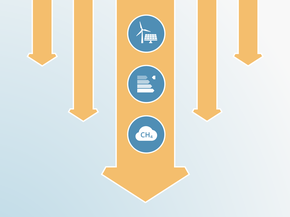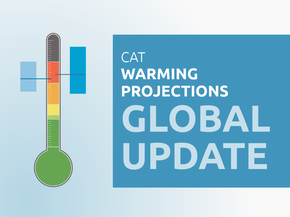Fair Share
Fair share
Argentina's unconditional commitment falls into the very lower-emissions end of the “Critically insufficient” category, close to the border with the "Highly insufficient" category. In past assessments, the CAT upgraded the Argentine rating to 'Highly Insufficient' due to positive political and policy developments in the country. Recent developments call those assumptions into question, and thus the CAT has returned to the 'Critically Insufficient' rating. Argentina has an additional conditional target of limiting emissions to no more than 322 MtCO2e excluding LULUCF (in AR4 GWP, based on CAT calculations) which is at the upper-emissions end of the CAT’s “Insufficient” range.
Both conditional and unconditional targets are defined in absolute terms, as opposed to reductions below business-as-usual, or an intensity target. The 2016 NDC enhanced the mitigation target both in absolute and relative terms, compared to the INDC.
The CAT rates Argentina’s unconditional target under the Paris Agreement “Critically insufficient”. The “Critically insufficient” rating indicates that Argentina’s climate commitment in 2030 is not consistent with holding warming to below 2°C, let alone limiting it to 1.5°C as required under the Paris Agreement, and is instead consistent with warming of over 4°C: if all countries were to follow [country]’s approach, warming would exceed 4°C. This means Argentina’s climate commitment is not in line with any interpretation of a “fair” approach to the former 2°C goal, let alone the Paris Agreement’s 1.5°C limit.
If Argentina decided to increase its ambition by turning its conditional target into an unconditional one, the country would move to the “Insufficient” rating under the CAT assessment. Commitments with this rating are in the least stringent part of their fair share range and not consistent with holding warming below 2°C let alone with the Paris Agreement’s stronger 1.5°C limit. If all government targets were in this range, warming would reach over 2°C and up to 3°C.
The CAT ratings are based on climate commitments in NDCs. If the CAT were to rate Argentina’s projected emissions levels in 2030 under current policies, we would rate Argentina “Critically insufficient”.
For further information about the risks and impacts associated with the temperature levels of each of the categories click here.
Further analysis
Latest publications
Stay informed
Subscribe to our newsletter




